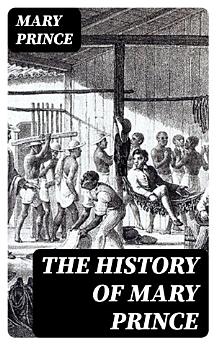The History of Mary Prince
Mary Prince
nvb 2022 · DigiCat
E-book
64
Pages
family_home
Éligible
info
reportLes notes et avis ne sont pas vérifiés. En savoir plus
À propos de cet e-book
In "The History of Mary Prince," Mary Prince presents a poignant narrative of her harrowing experiences as an enslaved woman in the West Indies. Written in a straightforward and evocative style, the book combines autobiography with a compelling call for abolition, immersing readers in the brutal realities of slavery. Contextually significant, this work stands as one of the first autobiographies published by a black woman in Britain, effectively highlighting the racial and gender injustices of the time while contributing to the broader abolitionist discourse of the early 19th century. Mary Prince, born into slavery in Bermuda in 1788, underwent severe trauma before gaining her freedom in London. Her personal insights and unwavering courage are further illuminated by her engagement with prominent abolitionists, such as Thomas Pringle, who helped bring her narrative to the public. Prince's life was a testament to the resilience of enslaved individuals, and her work is a vital contribution to both African diaspora literature and historical accounts of slavery. I highly recommend "The History of Mary Prince" to readers interested in understanding the lived experiences of enslaved people, as well as those seeking to explore the intersectionality of race, gender, and class in historical narratives. Prince's voice offers a unique perspective that resonates powerfully in contemporary discussions of equality and justice.
À propos de l'auteur
Mary Prince (c. 1788 – after 1833) was an abolitionist and autobiographer whose single work, 'The History of Mary Prince' (1831), provides a poignant insight into the brutality of slavery in the West Indies. Born into enslavement in Bermuda, Prince's narrative is the first account of the life of a black woman to be published in the United Kingdom. Her work is not merely a personal history but a powerful testimony for the abolition movement, which was gaining momentum at the time of its publication. Prince's narrative is noted for its unflinching portrayal of the cruel conditions faced by enslaved people, particularly women. Her evocative storytelling and vivid characterizations create a poignant and humanizing depiction of the enslaved experience. The text was transcribed by Susanna Strickland, under the editorship of Thomas Pringle, the secretary of the Anti-Slavery Society. Despite questions raised by skeptical audiences of the time about the authenticity of narratives written by black authors, modern scholars affirm the essential veracity of Prince's account. Her narrative remains a significant document for understanding the realities of slavery and has been widely analysed for its contribution to postcolonial literature and feminist narratives (Ferguson, 1987; Salih, 2007). Her voice, representing resilience in the face of oppression, continues to resonate with readers and scholars alike, offering a deeply personal perspective on the atrocity of the transatlantic slave trade.
Donner une note à cet e-book
Dites-nous ce que vous en pensez.
Informations sur la lecture
Smartphones et tablettes
Installez l'application Google Play Livres pour Android et iPad ou iPhone. Elle se synchronise automatiquement avec votre compte et vous permet de lire des livres en ligne ou hors connexion, où que vous soyez.
Ordinateurs portables et de bureau
Vous pouvez écouter les livres audio achetés sur Google Play à l'aide du navigateur Web de votre ordinateur.
Liseuses et autres appareils
Pour lire sur des appareils e-Ink, comme les liseuses Kobo, vous devez télécharger un fichier et le transférer sur l'appareil en question. Suivez les instructions détaillées du Centre d'aide pour transférer les fichiers sur les liseuses compatibles.








